Featured Farmer: John Naughton
from Mountain Sky Farms
 Tell me a little about your farm. What’s its name? Size?
Tell me a little about your farm. What’s its name? Size?
Mountain Sky Farms would be considered a micro rural farm located on 5 acres in North Scottsdale, Arizona. My farm could be described by some as literally out in the middle of the desert. My elevation is 2500 ft, so it’s a bit cooler and breezier than down in the valley. Currently I’m growing herbs, lettuces, microgreens and root vegetables. We import seeds from different countries like Italy and Mexico. I have always enjoyed the challenge of growing and find it to be extremely satisfying. Some of my earliest memories are of my parents working at a plant nursery. After several different career paths I decided to take one of my passions and turn it into a business.
Do you use any organic, permaculture, hydroponic, biodynamic, or other methods?
I’m growing using several methods. Vertical indoor Led for micro greens, deep water culture (hydroponics) and raised beds. The vertical and hydroponics systems use far less water than my raised beds, and that is important because of my limited access to water.
Do you use compost?
I’m currently not composting but would like to start. Because of the systems I use, I actually don’t have a lot of green waste, and my desert environment also doesn’t create much. Most of my green waste from the farm goes to the chickens, and they are pretty happy about that.
Do you have any urban livestock? Chickens? Bees?
I do have chickens and bees. I sell eggs and honey to the chefs I supply and also have a Scottsdale business owner who allows me to sell at her market. I started out rescuing bees with a local beekeeper, but discovered that I really don’t like dealing with the Africanized bees we have here in Arizona, so I now get the more docile Italians from bee suppliers.
What do you do with the food you grow?
I sell most of my produce to chefs and I will do an occasional farmers market. I really enjoy interacting with chefs and planning what I grow to meet their needs. Knowing that the end product is going to be part of a creative expression is what really ignites my passion.
What is your greatest challenge in your farming endeavor?
Well, I am my toughest critic so that’s probably my biggest challenge, but if when it comes to the day to day operations it would have to be not having city water. Housing developments in my area someday will bring water, but for now I haul my own. So for now my farm utilizes growing methods that best suit my current situation. My desert soil is also tough. I have fruit trees planted, but they struggle. I’m working on improving the soil by adding wood chips as a mulch, but because of my location, chip drops are not as frequent as I would like, so it’s a long-term endeavor.
What do you enjoy the most about farming/growing food?
I enjoy the reaction from chefs and people who understand what it takes to deliver a product that not only looks beautiful but tastes wonderful. Growing for chefs is very rewarding but it does requires a lot of planning and hard work that goes into delivering a high quality product.
Why do you think urban or small scale farming is important?
The globalization of our agriculture is one of the main reasons why urban and small scale farming has become so important. Crops grown hundreds of miles away that are harvested and then shipped to a warehouse and then to a distributor and then to the chef can take several weeks. Freshness and Taste suffer greatly. A visit to the produce section at Trader Joe’s is always a sad event for me—and no I’m not buying grapes from Chile. I think the growing movement is more about people wanting to know where their food comes from, how it tastes and how was it grown. The question I like to pose to people is, how local is local to you? Are tomatoes grown 4 hours away local? Is basil from Hawaii local? And yes I see basil from Hawaii sold here at farmers markets.
Is urban or small scale farming the future of agriculture?
Urban and small scale farming is certainly trending right now but is it the future for the Ag industry? I think that all depends on the location. For example, inner cities where farmable land is a non existent the future looks very bright for indoor and rooftop farming, but the farmer in Tennessee with 500 acres—I don’t think he’s going any where.
Do you have any advice for someone who’s just getting started?
My advice would be to visit small urban farms and gardens. Follow in the footsteps of successful operations and adapt those practices to your operation or gardens. Don’t try to reinvent the wheel. Lastly, have an open mind and be willing to adapt and change course. There are many different variables to farming, some we can control and some we can’t. And most importantly, be humble.


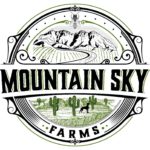
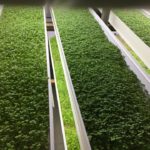
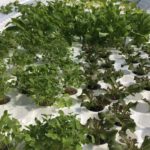
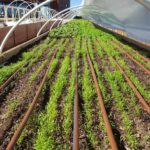
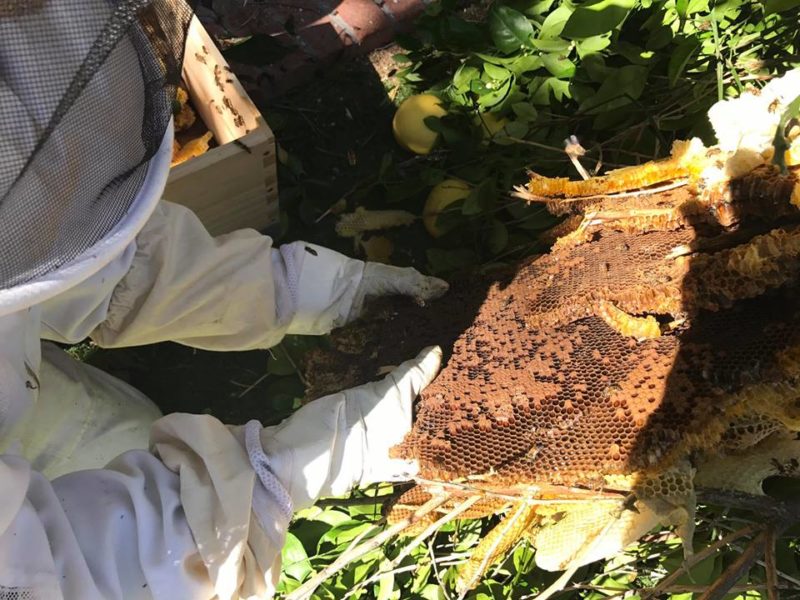
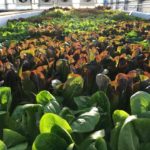
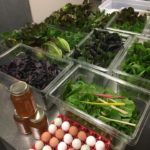
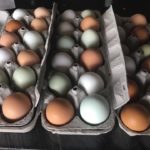






I’ve been purchasing your farm fresh 1lb lettuce boxes from Trilogy Verde River for several months but yesterday learned that they are no longer buying the lettuce boxes from you. My husband and I have never had such wonderful salads as we have with your produce and I wonder if I can purchase lettuce boxes directly from you. If not, can you tell me another place where I can make this purchase. Thank you so very much